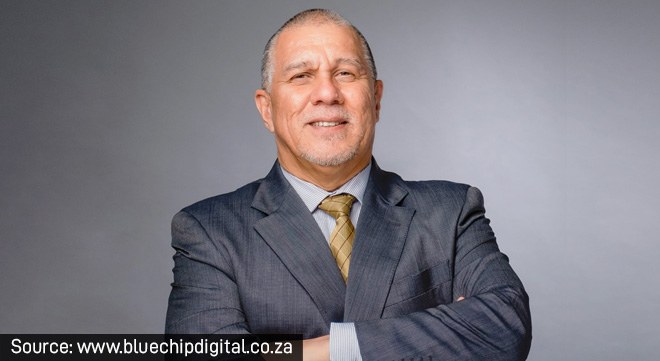Shahied Daniels (pictured), the chief executive of the South African Institute of Professional Accountants (SAIPA), has been dismissed following the conclusion of a disciplinary process. The decision marks the end of a turbulent chapter for both Daniels and SAIPA, as internal conflicts and governance issues have come to the fore.
The saga began in June last year when Daniels compiled a 30-page report outlining the strained relationship between SAIPA’s board and management. He claimed that “the action, behaviour, aggressiveness, blatant falsities, and inaccuracies directed towards the management team were negatively impacting the dignity and morale of the staff”.
By November, Daniels, along with operations executive Gavin Isaacs, business innovation strategies executive Nosheena Mansoor, and digital executive Thomas Nyamvura, had been placed on precautionary suspension. Nyamvura later resigned.
Daniels was served with a notice of precautionary suspension due to serious allegations and potential acts of misconduct in his capacity as chief executive. A month later, the SAIPA board appointed BDO, a forensic investigation firm, to investigate concerns regarding irregular expenditure, unapproved strategy costs, and other questionable spending activities.
Read: Accountancy body places executives on precautionary suspension pending a forensic investigation
The investigation focused on several governance issues, beginning with irregular expenditures linked to overseas travel that had been undertaken without board approval. It also scrutinised the costs associated with an unapproved strategy aimed at globalising SAIPA’s professional designations, which had been developed without the consent of the board or its members.
Further concerns arose from the creation of an international SAIPA entity in Switzerland, which had been initiated without the required approvals. Additionally, the probe examined expenditures related to the Centre of Future Excellence, including training and other unaccounted costs, as well as the unauthorised interception and hacking of the chairperson’s emails, raising serious concerns about internal controls and oversight.
The forensic report uncovered what it described as “prima facie evidence of numerous breaches of governance, SAIPA’s policies and procedures, and potentially serious misconduct”.
Since April, Daniels and Isaacs have faced a disciplinary process based on the findings of this report, which indicated gross negligence and serious governance breaches.
The disciplinary hearing found Daniels guilty of all six charges brought against him by the board, which include:
- embarking on international travel without approval in terms of the organisation’s policies;
- approving invoices for payment in relation to his participation in his graduation overseas, graduation dinner, hiring of academic gown, accommodation costs, transfer costs, and travel insurance;
- being directly involved in the improper procurement of the services of an international company;
- issuing instructions for the establishment of a company in Switzerland without board approval and registering SAIPA Global trademarks without board approval;
- contravening the terms and conditions of his notice of suspension; and
- demonstrating a character and attitude of incompatibility with the board.
Terry Motau (SC), the independent chairperson who led the disciplinary hearing following the outcome of the forensic investigation, stated that the charges, considered individually and/or cumulatively, constitute gross misconduct, and serious breaches of Daniels’s fiduciary duties and his contract of employment.
“I found Mr Daniels to have been dishonest, by lack of integrity and straightforwardness, in failing to disclose in the strategy plan all the catalogued steps that had been taken towards the registration and formation of SAIPA Global.”
SAIPA’s board concluded that Daniels’s behaviour undermined the trust placed in him as chief executive. Motau stated: “The evidence shows that the special trust relationship between Mr Daniels and the board has been vitiated. He further contravened SAIPA policies that he signed and is a custodian of.”
Based on these findings, the board recommended immediate dismissal.
Moonstone approached Daniels for comment, which will be added once it is received.
As for Isaacs, his disciplinary hearing is ongoing, with the outcome still pending.
The road ahead for SAIPA
With Daniels officially dismissed, SAIPA is preparing to appoint a new chief executive.
Tia van der Sandt, who has been serving as acting chief executive since the suspensions, will continue in this role during the transition. Prior to her interim appointment, Van der Sandt chaired SAIPA’s risk and compliance committee.
However, the transition has not been without controversy.
Read: Forensic investigation at SAIPA is at an ‘advanced stage’
Shortly after the suspensions, a group of eight concerned SAIPA members called for an urgent special general meeting, questioning the board’s actions and Van der Sandt’s suitability as acting chief executive.
The petition expressed concerns that her lack of operational experience within SAIPA could lead the institute into further turmoil. These members also warned that the suspensions could damage SAIPA’s credibility, potentially resulting in membership losses and reduced revenue as some professionals considered joining other accountancy bodies.
As the dust settles from this leadership crisis, the Institute stated that alongside the search for a new CEO, “the board is working closely with the acting CEO, Tia van der Sandt and her management team to ensure a process of rebuilding staff morale after this extremely difficult episode”.



